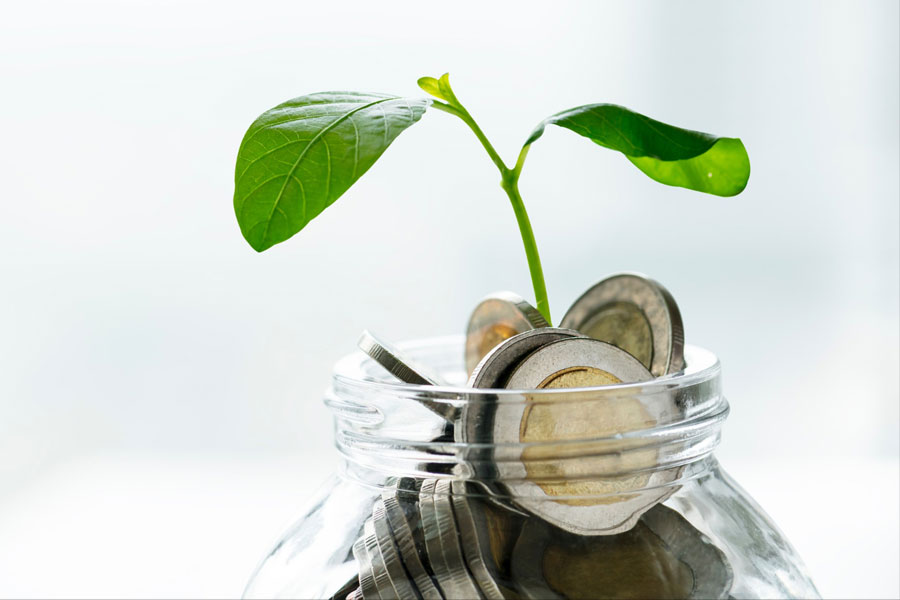By now, environmental sustainability, and the transition to a clean and restorative economy of the environment, is an essential issue for which every company should mobilize.
2021 was one of the worst years in history for extreme climatic events caused by the rapidly deteriorating environmental conditions. The damages recorded in terms of losses for the insurance sector, according to AON, exceeded 100 billion dollars but this is only a partial representation of the true social and economic costs that add up to those of COVID 19.
To give an idea of the economic impact of extreme weather phenomena, in the United States alone the total costs in the last 5 years (2017-2021) were 742.1 bln dollars, with an annual average of 143 billion dollars.
The world of global finance has noticed this. Larry Fink, CEO of Black Rock the world’s foremost asset manager, said last year that there will be no company that will not be profoundly impacted by the transition to the “net zero” economy and that companies that do not prepare will see their value decrease.
Investments in so-called ESG funds that intend to convey capital in the economy of sustainability and environmental transition have grown exponentially in the last 2 years reaching over 1 trillion dollars.
On the other hand, the US SEC (Stock Exchange Commission) issued a “warning” for investors, complaining about a lack of evaluation criteria for these funds and their allocations, considering the ESG criteria not sufficiently standardized and precise.
ESG: what is meant?
When we talk about ESG we refer to an idea of ethical finance.
An investment system that stimulates companies towards green and eco-sustainable strategies and forms of governance. All this after careful evaluation of certain quality standards of the company’s business.
The acronym is based on three fundamental concepts:
E: Enviromental, that is all those environmental criteria useful for assessing when a company can be defined as sustainable.
S: Social, measures the social impact of the company with its reference community. We talk about customers, employees, suppliers, etc.
G: Governance, we mean a governance inspired by good ethical principles. We talk about respect for company choices, employee remuneration, etc.
What are the reasons why investors are orienting their choices towards the economy of sustainability through innovative ESG funds?
According to Andrew Winston, an expert in the field of corporate sustainability and author of the article, there are basically three reasons:
The risk generated by climate change is now indubitable: an awareness that has increased after the pandemic emergency. Urgent measures by companies are not only desirable but even encouraged by governments and the European Community.
Investors feel the pressure of stakeholders and those who constantly move the market and the economy on their shoulders. Andrew Winston says he held court at an event for wealthy people on the circuit of a major international bank. The head of the bank’s assets, following a survey he conducted, said that the main interest of customers at this time would be ESG investments. This is a change of course to be attributed to the new generations of these wealthy families.
The main reason, however, is that the move towards a clean economy represents a great business opportunity that investors have diabolically sniffed out. The acceleration towards a clean economic model determines not only an increase in companies that employ increasingly sustainable production systems but also the inevitable consequence of making all those companies that use polluting technologies disappear.
Also according to Andrew Winston, the success of the ESG concept is due precisely to the arrival of investors on the scene of environmental sustainability.
ESG has become the language used, by the financial and non-financial world, to distinguish funds intended for companies that boast a certain level of performance also in corporate sustainability.
All this in order to also implement corporate sustainability models that favor the transition to a green economy.
The fact that ESG funds are designated to companies that boast enviable quality standards has obviously generated great repercussions in the corporate world and in access to capital.
Even companies completely detached from the concept of sustainability, such as those that produce weapons, have applied for these funds, since they help defend democracy in the midst of the Ukrainian conflict.
Is there a risk of a new “speculative bubble” which in reality allocates financial resources according to criteria that are not sufficiently reliable and which do not really affect the achievement of the objectives of the energy transition?
The doubt that emerges from the author’s reflection is whether this process is the optimal one to guide companies towards the ecological and energy transition for effective collaboration in achieving the collective objectives of the “net zero” economy.
Should we entrust the environmental transition to the financial market?
This last reason is very controversial for our future.
Do the smoky and unclear semantic boundaries of the ESG tool risk filling it with a meaning connected only to the world of economics and investments?
Is it really appropriate to entrust the future of the planet in the hands of the aseptic logic of profit and the stock market?
Isn’t it precisely this model that led us to ecological disaster and the increase in inequalities?
Hence, according to Andrew Winston, the need to define ESG funds in a more positive language.
Widech SpA point of view
The position of Widech SpA and its CEO Giacomo Ortolano is very clear in this regard and is the company’s mission.
It is necessary to integrate the digital lever and innovation into the energy transition.
Widech intends to put itself at the service of this economy and of the debate, de-ideologizing it, through the concreteness of data, of analyzing phenomena in real time, of applying artificial intelligence technologies to create knowledge, correlate real data, objectives, also with the Communities, in a transparent way as well as providing all the greentech solutions for the energy transition.
As Giacomo Ortolano reminds us: “What is not measured does not exist”.

